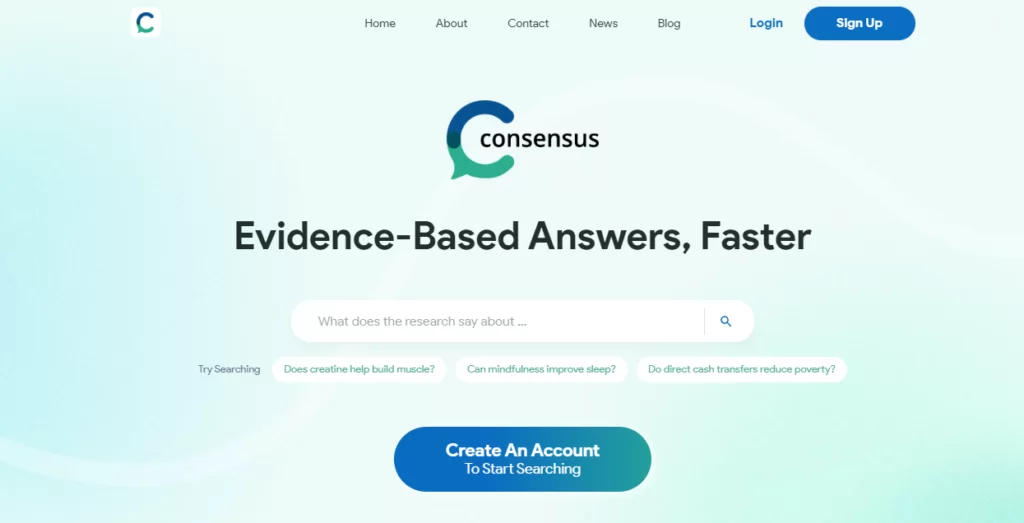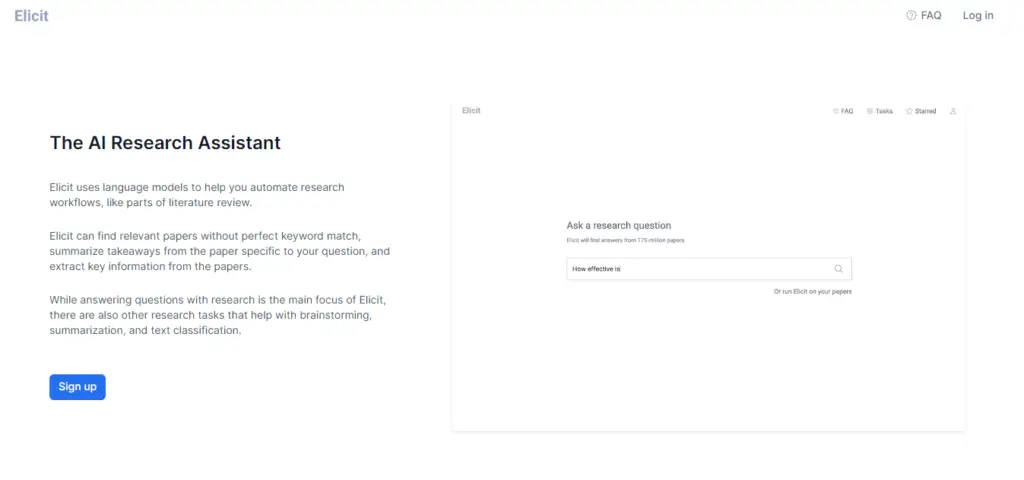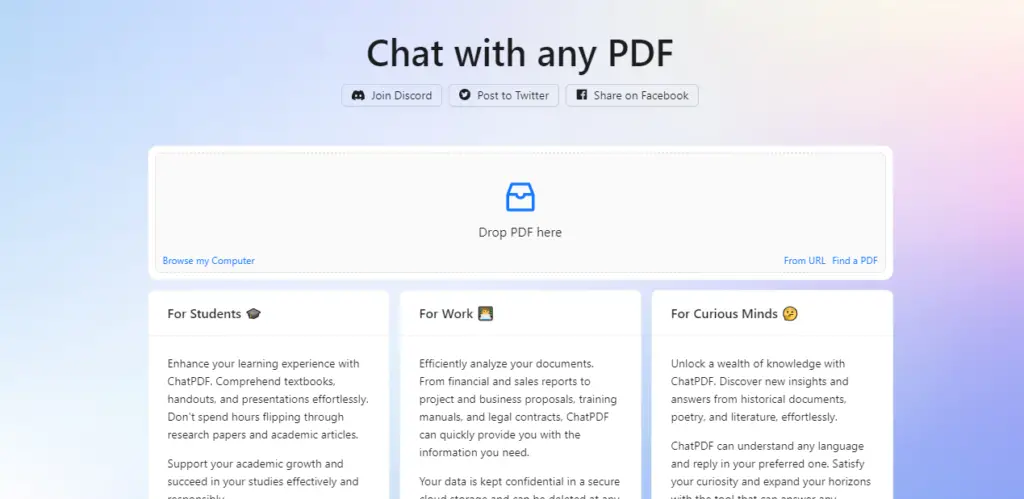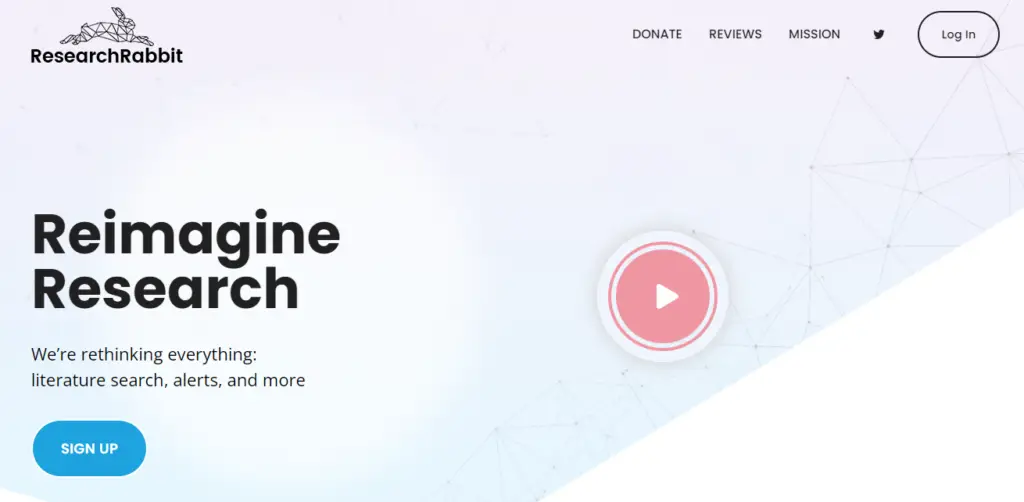Top 7 Artificial Intelligence (AI) Tools in Scientific Research 2024: Revolutionizing Discovery and Efficiency
Artificial Intelligence (AI) is transforming the landscape of scientific research, offering tools that enhance efficiency, accuracy, and discovery across disciplines. Researchers can now access a range of AI-powered platforms that assist with literature reviews, data analysis, and hypothesis generation. Here, we present the top 7 AI tools in scientific research for 2024, each playing a crucial role in advancing the research process.
There are some AI tools available to help researchers with their work. Here are a few of the most popular:
1. Scite Assistant
Scite Assistant is an innovative AI tool that helps researchers quickly assess the relevance and credibility of scientific articles. By analyzing citations, it identifies whether an article has been supported, contradicted, or mentioned in other research. This makes it easier for researchers to discern the impact and reliability of studies, saving valuable time during the literature review process.
- Key Features: Citation analysis, claim verification, and a robust database of academic publications.
- Use Case: Ideal for researchers looking to streamline their review of existing literature and find authoritative sources.
- Visit: Scite Website
2. Consensus
Consensus is an AI tool designed to extract consensus from scientific literature on specific research questions. It allows users to input a research question, and the AI scans academic papers to summarize the findings. This makes it easier for researchers to identify common conclusions or debates within a field of study.
- Key Features: Simplifies complex research questions, aggregates findings, and highlights points of agreement or disagreement.
- Use Case: Useful for meta-analyses or understanding the prevailing opinions within a particular research topic.
- Visit: Consensus Website
3. Elicit
Elicit is an AI-powered research assistant that helps researchers find relevant papers, design studies, and generate hypotheses. It uses machine learning to answer research questions by gathering information from academic databases and summarizing findings in an easy-to-understand format.
- Key Features: Study design recommendations, hypothesis generation, and a user-friendly interface for accessing academic papers.
- Use Case: Best for researchers at the early stages of a project, helping them map out relevant literature and refine research questions.
- Visit: Elicit Website
4. ChatGPT
ChatGPT, developed by OpenAI, is a versatile AI tool that supports researchers by answering questions, summarizing articles, and even assisting with data analysis and code generation. With its ability to understand and generate human-like text, ChatGPT has become a valuable companion in both academic and applied research settings.
- Key Features: Natural language understanding, text generation, code writing, and personalized assistance.
- Use Case: Ideal for researchers needing help with writing, data analysis, or finding quick answers to technical questions.
- Visit: ChatGPT Website
5. ChatPDF
ChatPDF is an AI-driven tool that allows researchers to interact directly with academic papers in PDF format. Users can upload a PDF and ask questions about the content, with ChatPDF providing answers based on the document's information. This tool makes it easy to extract insights without reading through entire papers manually.
- Key Features: Interactive PDF reading, instant answers to questions about the paper, and efficient data extraction.
- Use Case: Great for researchers who want to quickly understand key findings, methods, or data from lengthy academic papers.
- Visit: ChatPDF Website
6. Research Rabbit
Research Rabbit is a discovery tool that helps researchers explore connections between academic papers, authors, and topics. It uses AI to create a visual map of related studies, helping users identify new research avenues and collaborators. This approach makes it easier to understand the relationships between different research streams and trends.
- Key Features: Visual mapping of research topics, author networks, and paper connections.
- Use Case: Ideal for expanding literature searches, discovering new research directions, and finding potential collaborators.
- Visit: Research Rabbit Website
7. SciSpace (Typeset.io)
SciSpace, also known as Typeset.io, is a comprehensive research management platform that simplifies manuscript writing, formatting, and submission to journals. The AI helps researchers ensure that their papers meet journal guidelines, streamlining the often tedious process of formatting and submission.
- Key Features: Automatic journal formatting, manuscript editing, and research collaboration tools.
- Use Case: Best for researchers looking to streamline the manuscript preparation and submission process, saving time and effort.
- Visit: SciSpace Website
How AI Tools Can Help PhD Scholars and Scientists
AI tools can be a valuable resource for PhD scholars and scientists at all stages of their research. They can help to:
- In the lab: AI tools can be used to automate tasks, such as data collection and analysis. This can free up researchers to focus on more creative and strategic work.
- Writing research articles: AI tools can be used to help researchers to brainstorm, write, and edit their work. They can also be used to generate citations, create bibliographies, and check for plagiarism. It will help you to write a research article.
- High IF Journal publication: AI tools can be used to help researchers to find relevant journals, submit their papers, and track their progress through the publication process. It will help you to publish in high-impact factor journals.
- Streamlined Experimentation: AI tools assist in designing experiments, optimizing parameters, and automating data collection, saving time and reducing human errors.
- Advanced-Data Analysis: These tools provide sophisticated algorithms for data analysis, enabling researchers to uncover patterns, identify trends, and derive meaningful insights from complex datasets. It will help you to analyze data efficiently.
- Literature Review and Paper Writing: AI-powered tools can aid scholars in conducting comprehensive literature reviews, generating summaries, and organizing references, facilitating the writing process.
Step-by-Step Guide: How to Use ChatGPT to Write a Literature Review With Prompts
- Journal Publication: AI tools help researchers identify suitable journals, check manuscript compatibility, and provide language editing suggestions, improving the chances of successful publication.
- Thesis or Dissertation Writing: AI tools can be used to help researchers to write their thesis or dissertation. They can help to organize the research, grammar check, plagiarism check, generate ideas, and write a clear and concise argument. It will help you to write your thesis and dissertation efficiently.
ChatGPT prompts to write a PhD Thesis
Final Takeaway
The landscape of scientific research is evolving rapidly, and AI tools are playing an essential role in this transformation. From facilitating literature reviews and data analysis to assisting with manuscript preparation, the top 7 AI tools highlighted here offer powerful solutions to enhance research productivity and innovation. As these technologies continue to advance, they promise to further accelerate discoveries and deepen our understanding of the world around us.
AI tools are a powerful new tool for scientific research. They can help researchers to save time, improve their work, and make faster progress. If you are a PhD scholar or scientist, I encourage you to explore the many AI tools that are available.







